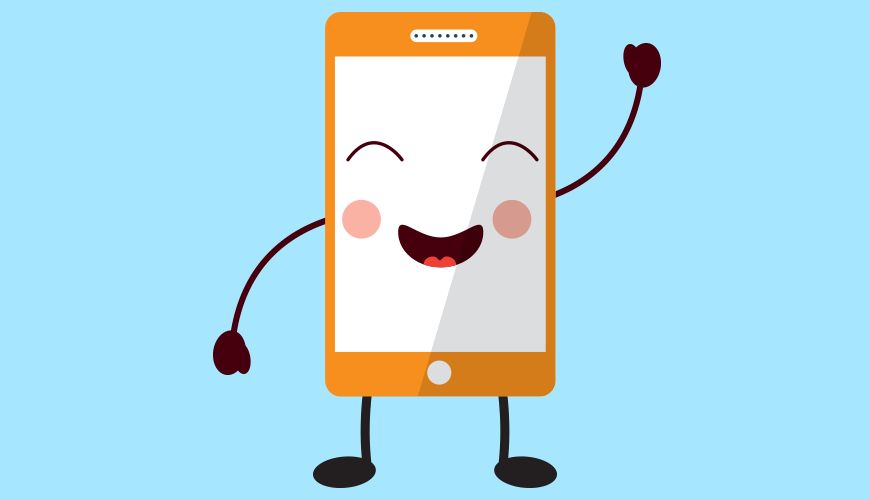Gen Z is growing up remarkably different from other generations—including Millennials—due to powerful digital tools and transformative tech innovation. While Millennials experienced the internet in its infancy (remember giant boxy monitors and desktop computers??), Gen Z has always had technology right at their fingertips.
In fact, we found in our 2018 State of Gen Z® study that 95% have a smartphone. And, 25% had a smartphone before the age of 10! Being connected 24/7 is their norm.
As true digital natives, Gen Z uses mobile phones to hail a ride to a movie theater and order products from China and to effortlessly send selfies to friends around the globe. They live stream video, chat with their parents, and manage their schoolwork—all from one 3×5 mobile device.
They are absorbed in an online world—to the extent that we’re starting to say they are “living digital lives,” rather than simply saying they are immersed in digital technology.
As part of our 2018 State of Gen Z® study, we wanted to explore this concept of “living digital lives” even further. Keep reading to see what we uncovered.
iPhone versus Android: Which Smartphone Does Gen Z Prefer?
Since almost all Gen Z (we were able to survey 13-year-olds and above) have smartphones, in this year’s survey, we asked what type of phones they have: iPhone or Android? We found that overall 59% have iPhones while 39% have Android. Now, this split is a little more nuanced when we look at gender.
Knowing which ecosystems Gen Z uses most frequently is helpful for developing apps, building websites, creating marketing campaigns, and so much more. The gender differences regarding technology usage are very interesting and something we hope to study more in the future.
With the data we have, our team has some theories on why Gen Z guys might have a higher preference for Android smartphones. We hypothesize it’s because there are more options for customization and more third-party apps. Plus, Android has a lower price point than the iPhone, so it will be interesting to see how this impacts Gen Z’s brand and tech ecosystem preferences as they enter different life-stages.
How Much Time Does Gen Z Spend on Their Mobile Phones?
When we talk about Gen Z living digital lives, the amount of time they spend on their mobile phones is a major driver of habits and behaviors —and they are spending a lot of time on their phones. In fact, 55% of Gen Z is on their phone five hours or more a day.
Cutting the data across genders, we found that 65% of girls are on their phones five or more hours a day while only 50% of guys are their phones five or more hours a day.
What’s really interesting is that there’s a group of Gen Z (12%) that are on their phone 15 or more hours a day! These power users experience a complete digital/physical overlap, living in two worlds simultaneously.
So, this power group may be content creators or consuming a lot of content, tweeting more, and perhaps more vocal online. As a researcher, I’m very interested in this group. They may be the ones driving the conversations between brands and consumers.
Smartphones After Midnight: Gen Z are Serious Night Owls!
Another really interesting thing about Gen Z and their smartphones is how much they are on them after midnight. We were shocked by the answers in our latest survey!
We found that 44% of Gen Z are on their smartphone after midnight once a week to several times a week. But even more shocking, 29% say they are on their phone after midnight every night!
The world is always awake, and smartphones facilitate Gen Z’s connection to it. With a global data stream, there’s always something happening. For example, a makeup influencer in England might be live streaming on Facebook at 6pm their time, so a Gen Zer in America will stay up to watch. Or they might be playing a game online with friends, but their friends live in Korea and China.
So, putting together all this data, we find that this generation is always on, always connected. And for a sizable segment of Gen Z, there’s almost never a moment when they’re not using their smartphones for something, which is completely unprecedented.
Extreme Smartphoning: Generational or Life Stage?
This new reality of 24/7 connectedness also brings up other questions, such as: what are the long-term effects of spending so much time looking at a screen? How does after midnight usage impact sleep, mental health, learning, work, relationships, etc.? These are all big things we will be looking at in the coming years as we study Gen Z.
Right now, we can’t say for sure whether or not Gen Z’s mobile phone usage is completely generational or if it’s also partially due to their life stage. They are developing tech habits that will likely carry forward. When this generation starts to enter the workforce, with more demands on their time, they may change their after-midnight habits.
However, for the 80% of Gen Z who don’t have full-time jobs, but are in school or working part-time, they might have more free time and suffer fewer negative consequences for staying up on their phones after midnight.
Screens are a Multi-layered Experience
In addition to Gen Z being on their phone five or more hours a day, they’re also using multiple screens at the same time. For example, they might be on their mobile phone and their laptop while also streaming music using their smart speaker.
It’s not a sequential progression of one screen and then another; it’s a multi-layered experience. This means it’s very likely that in one household there could be eight screens going at the same time—and this is the kind of digital environment Gen Z is growing up in.
What Does Gen Z’s Intensive Mobile Phone Usage Mean?
There are a few important implications. First of all, companies and marketing leaders must understand that because Gen Z lives on their smartphones, every interface they design needs to work seamlessly on mobile. Design with a mobile-first philosophy.
Second, companies and marketing leaders need to understand their website, advertising, email, and any other type of media they’re using is almost exclusively being viewed in a small-screen environment—generally with other screens surrounding, all in active use.
This competition for Gen Z’s attention is just heating up! Stay tuned as we share our insights into how to effectively engage Gen Z on their phones.
Want to Solve Your Gen Z Challenges?
We lead national and international Gen Z, Millennial, and generational studies for our clients every day. We also keynote events around the world, helping businesses better understand their customers and workforce.
Let us know how we can help you. Send us an email or give us a call and we’ll be happy to provide a little information for you to review.
Keep the conversation going. Follow The Center on Instagram @TheGenHQ or on Twitter @GenHQ. We are passionate about sharing our latest generational discoveries!
Heather Watson, CGK’s Behavioral Designer, explores the intersection between behavioral economics and generational technology adoption and habit formation as it drives experience, purchases, and emerging trends.





